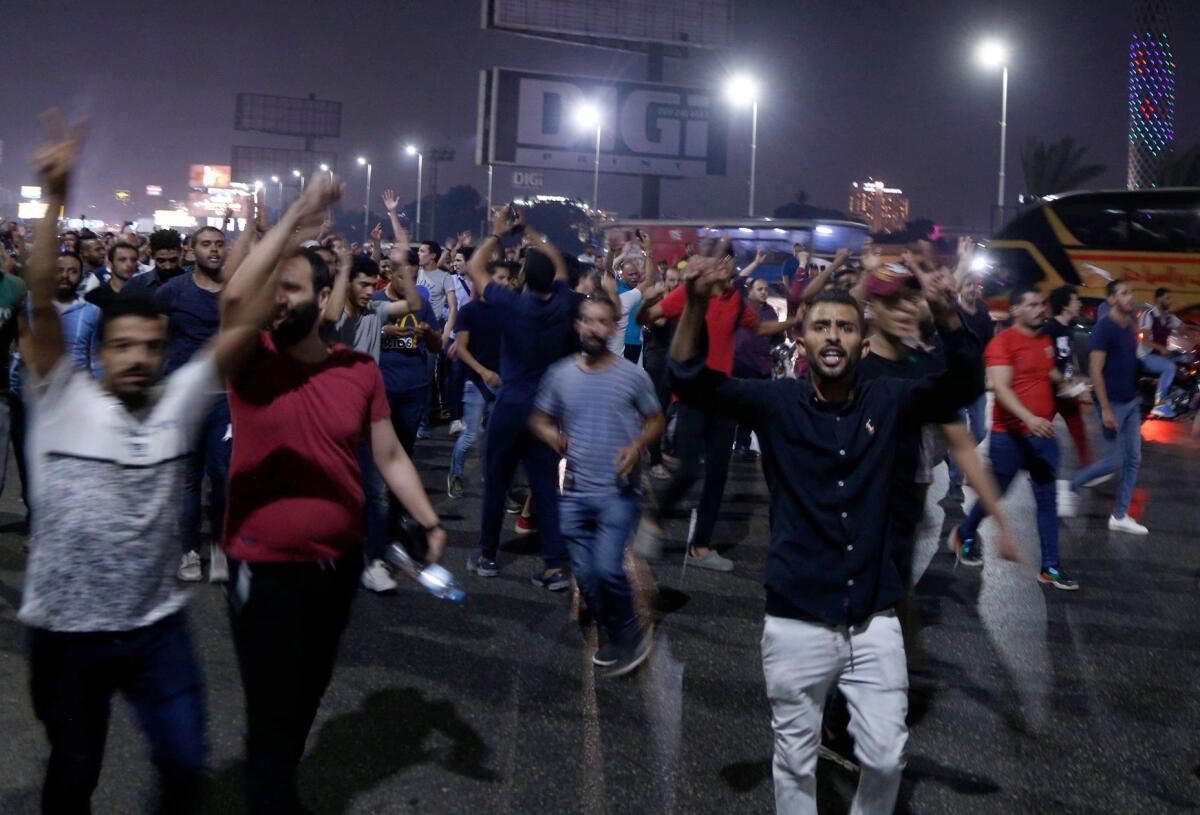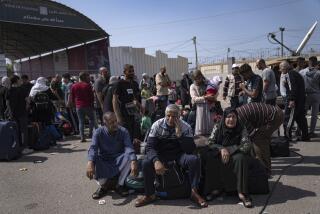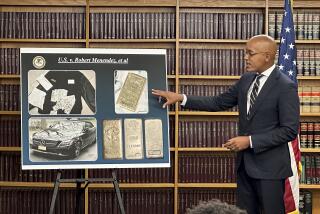Egypt arrests 1,900 to prevent more protests this weekend

The protests were small and scattered — no more than a few hundred people spread across several Egyptian cities to demand the removal of President Abdel Fattah Sisi.
But in a country that came to understand the political power of crowds during the Arab Spring uprising eight years ago, the government moved swiftly to prevent last Friday’s protesters from gaining momentum.
Amid calls for more protests this Friday, authorities arrested 1,915 people in six days, according to the Egyptian Center for Economic and Social Rights.
Those swept up in the dragnet include protesters, activists, human rights lawyers, journalists, academics, politicians, even spectators filming the protests from their balconies.
They face charges of taking part in an illegal protest, using social media to call for participation in protests, spreading false information, contributing to the goals of a terrorist group and undermining national security, according to Mohamed Lotfy, executive director of the Egyptian Commission for Rights and Freedom.
Police presence has been beefed up in Cairo’s Tahrir Square, the heart of the 2011 protests that toppled longtime Egyptian leader Hosni Mubarak.
Mohamed Morsi, a member of the long-suppressed Muslim Brotherhood, became the country’s first democratically elected president. But Sisi wielded growing opposition to Morsi and the Brotherhood to oust him in 2013.
Under Sisi, repression is worse that it was in the Mubarak era. Protests have been essentially outlawed; even a mildly critical comment on Facebook can be dangerous.
That made last week’s demonstrations in Cairo, Alexandria, Suez, Damietta, Mahalla and elsewhere a surprise. They were the first popular expression of resistance to Sisi.
The “taboo” of demonstrating “is broken now,” Lotfy said.
To the frustration of the authorities, the person who initiated the protests lives outside their jurisdiction — in Spain.
Mohammed Ali, a 45-year-old Egyptian actor who also works in the military contracting industry, has riveted Egypt over the last few weeks with video performances on social media excoriating the Sisi government with accusations of corruption and waste.
Among his favorite allegations is that pricey renovations were made to presidential palaces at the behest of Sisi’s wife.
It was on Ali’s orders that protesters walked openly in the streets after a soccer match between two of the country’s biggest teams last Friday and demanded Sisi leave office.
Ali has offered no evidence to support his allegations, but they have struck a nerve in a country that has endured rising poverty rates and harsh austerity measures accompanying a $12-billion loan from the International Monetary Fund.
The government has mounted its own media campaign against the protests.
Authorities have disrupted Facebook Messenger — an important means of communication for Egypt’s demonstrators — according to Netblocks, a group that monitors online censorship.
The government already blocks roughly 500 websites; this week it cut off those of the BBC and Alhurra, a U.S. government-funded public Arabic language channel that aims to improve America’s image in the region.
The government has also mobilized artists, musicians and other celebrities to post videos on Facebook and Twitter earnestly expressing loyalty to Sisi and in some cases warning of external forces that wish the country ill.
The government sent foreign journalists stationed in the country an email telling them what they produced was “carefully monitored” and advising them to “abide by professional codes of conduct.”
“Social media outlets should not be considered as sources of news or reporting,” it said.
In the rare instances that pro-government media have mentioned the protests, it is to blame the Muslim Brotherhood. Sisi, who attended the United Nations General Assembly in New York this week, told reporters that “political Islam” was to blame for the unrest.
Ali has called for a “million-man march” this Friday, but experts said that sort of turnout is highly unlikely.
Amy Hawthorne, a research director at the Project on Middle East Democracy, said the current wave of arrests “will be chilling and may have the effect of making a lot of people too nervous to go down to the streets.”
Islam is a special correspondent.
More to Read
Start your day right
Sign up for Essential California for news, features and recommendations from the L.A. Times and beyond in your inbox six days a week.
You may occasionally receive promotional content from the Los Angeles Times.






